Detailed introduction of the Institute of Science and Technology Austria:
Introduction
The Institute of Science and Technology Austria is an international research institution located in Klosterneuburg, a suburb of Vienna, Austria, dedicated to cutting-edge basic research and graduate education in natural sciences and related disciplines.
Overview
Staff size: As of 2022, it has 76 professors and 320 doctoral students.
Research teams and topics: There are more than 80 research teams, and the research fields cover life sciences, physics, mathematics, chemistry, astronomy, earth sciences, computer science, data science, biology, neuroscience, etc., with many exciting scientific topics.
History and establishment time
In 2002, Austrian physicist and 2022 Nobel Prize in Physics winner Anton Zeilinger proposed the idea of creating a flagship organization for scientific research and graduate education at the highest level at the Alpbach Annual Technology Forum. After several feasibility studies, in 2005, the Council of Ministers decided to establish the institute in Klosterneuburg. In 2006, the Austrian Federal Government and the Lower Austrian State Government passed the federal law on the Institute of Science and Technology Austria and reached an agreement. In 2009, the institute was officially established and put into use.
School Strength
Faculty: It has a group of experts and scholars with important international influence, such as Professor Jiri Friml, who is an authority in the field of plant developmental biology, and Professor Eva Benkova, who is the dean of the Graduate School and has made fruitful achievements in the field of plant developmental biology.
Scientific Research Achievements: Many professors have published a large number of high-impact papers in top journals in their respective fields. For example, Professor Jiri Friml has successively presided over major European research projects such as ERC Advanced Grant, and published 300 papers in mainstream journals such as Cell, Nature, Science, Nature Plants, etc. The rest of the article.
International Exchange and Cooperation: Actively carry out international exchanges, establish cooperative relations with universities and research institutions around the world, provide students and researchers with a broad international cooperation platform, and enhance its visibility and influence in the international academic community.
Nature of the institution
Public research institution.
Educational philosophy
Carry out basic research in the fields of natural sciences and mathematics, and train future researchers.
Promote interdisciplinary interaction among scientists.
Provide a world-class environment for scientific research, attract doctoral students, postdoctoral fellows and professors from various countries.
Committed to the highest international academic standards, integrity, equality and diversity on campus, respecting and recognizing everyone.
Key laboratories and disciplines
Key disciplines: Life sciences, physics, mathematics, and computer science are its key disciplines. In-depth and cutting-edge research has been carried out in these fields, and a series of important scientific research results have been achieved. Its graduate education also mainly revolves around these disciplines.
Key laboratories: Although key laboratories in the traditional sense are not explicitly mentioned, judging from their research teams and topics, they are equipped with advanced research facilities and experimental conditions in relevant disciplines to support researchers in conducting high-level research.
Departments
Departments in the traditional sense are not clearly divided, but judging from the distribution of disciplines, they are mainly concentrated in disciplines related to natural sciences and mathematics, such as chemistry, physics, astronomy, earth sciences, mathematics, computer science, data science, biology, neuroscience, etc. The various disciplines are cross-integrated and jointly promote the development of interdisciplinary research.
Rankings
As an institution focusing on basic research and postgraduate education, although it does not have a comprehensive ranking like a comprehensive university, its research level and education quality in disciplines such as natural sciences and mathematics are highly recognized internationally, and its research results and academic influence make it perform well in professional rankings in related fields.
Fees
For doctoral students, students from other EU and EEA countries do not need to pay for doctoral programs at public universities if they complete their degrees on time; international students need to pay fees at public universities, and the maximum amount is limited by the Austrian government to 726.72 euros per semester.
Campus
The campus is located in Klosterneuburg, 20 kilometers northwest of Vienna, with a beautiful environment, providing a good atmosphere for scientific research and learning. The campus is equipped with advanced scientific research facilities and complete living facilities to meet the learning, work and life needs of researchers and students.
-

Graz University of Technology
-

University of Linz
-
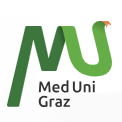
Medical University of Graz
-

University of Leoben
-
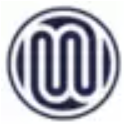
Medical University of Vienna
-
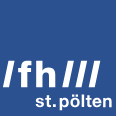
St. Pölten University of Applied Sciences
-
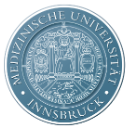
Innsbruck Medical University
-
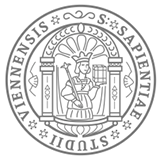
University of Vienna
-
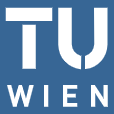
Vienna University of Technology
-

University of Natural Resources and Applied Life Sciences, Vienna
-

Mesoamerican University
-

Istmo University
-

Mariano Galvez University of Guatemala
-

Regional University of Guatemala
-

Galileo University
-

Francisco Marroquín University
-

Rafael Landívar University
-

University of the Valley of Guatemala
-

University of San Carlos of Guatemala
-

Technological Institute of Tlaxcala Plateau
-

Golfo University
-

Technological University of South Sonora
-

Technological University of Huejotzingo
-

Tizimín Institute of Technology
-

Chilpancingo Institute of Technology

